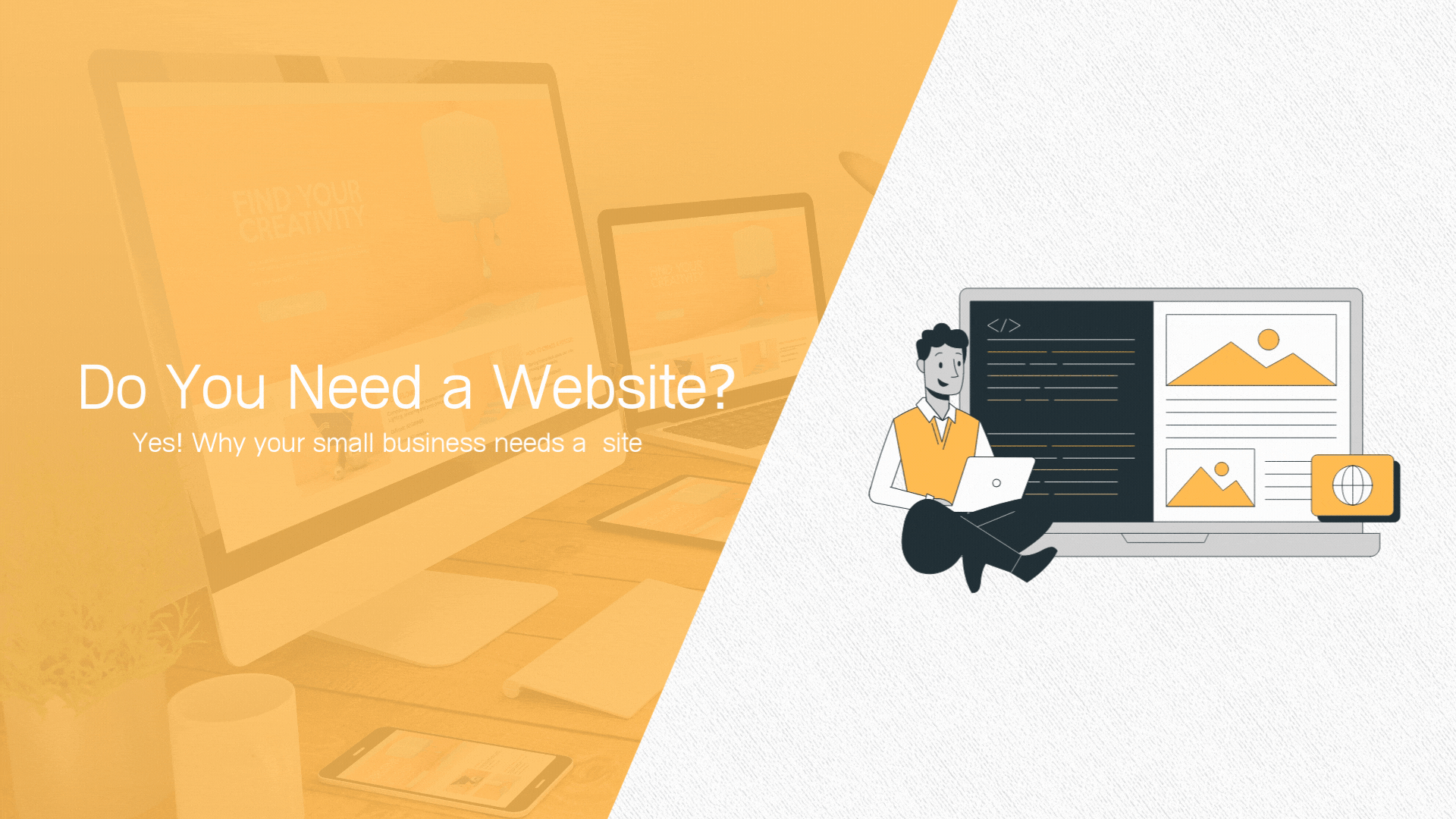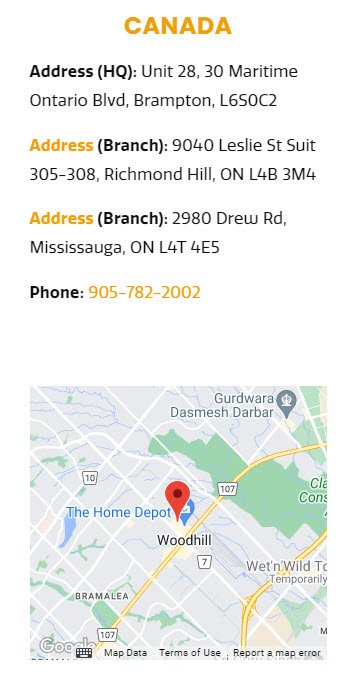If you have not developed a website for your business, you might be wondering: do I need one? The answer is yes! In today's competitive marketplace, a website can be the difference between failure and success. A well-designed website will not only give your business an edge over competitors in your area, but it will also help you establish credibility among potential buyers and aid in establishing a strong online presence.
Not convinced? We’ve collected ten of the biggest benefits your small business can receive from even a simple website.
Ten reasons why you need a website for your small business
1. A website makes you look professional
84% of today’s consumers think a website makes your business more credible than companies that only have social media profiles. Your website is also the perfect place to show off any professional certifications or awards your business has.
Beyond that, having your own website lets you create a branded email address (e.g. dianna@yoursite.com) which adds a level of professionalism to all of your correspondence, especially if you’ve used a personal email address to conduct business up until now. In addition, some email marketing tools no longer allow users to send emails from personal addresses. This means that if you want to take advantage of the power of email marketing, you’ll need a business email account.
2. Your website can attract new customers through Google
You may be happy with the current size of your business, but every company experiences customer turnover. To encourage continued success, you need to attract new customers, and one of the best ways to do it is by making yourself more visible on Google. Social media networks are indexed on Google, and social media posts can be found with the search engine, but a website gives you access to many more tools and strategies for Search Engine Optimization (SEO). And SEO is the key to making your business appear on the front page of Google.
The phrase “search engine optimization” might be intimidating, but in practice, it’s fairly simple. You enter words and phrases related to your business into a keyword research tool, figure out which ones are getting the most traffic on Google, then build your content around those phrases. As a rule, each piece of content should be focused on a different keyword, so that as your list of content grows, your site is able to rank for more keywords. There are some excellent SEO plugins for WordPress that make it easy to do this, with no previous training required.
3. You can clearly showcase your products and services
You can show potential customers what they’ll get when they work with you by displaying high-quality photography on your website. Take a look at how the UK restaurant Blackhouse has accomplished this on their website:
You can also use your website design, along with the featured images, to give people a sense of what it feels like to enter your physical location. This works particularly well if your brand is closely tied to the “feel” of your location.
Another thing you can do is publish important information about your products and services on your website to make sure you’re attracting the right customers. For example, if you run a restaurant, you might want to mark any items on your menu that are gluten-free so people with Celiac or other conditions that make gluten dangerous know they can eat in your establishment.
4. You can display your best reviews and testimonials prominently on your website
Displaying your best reviews and/or testimonials prominently on your website is a great way to establish social proof. This might come in the form of personal customer testimonials, like this review on the website of the non-profit organization.
If your business has appeared in articles from newspapers or popular local blogs, you can also feature those as well.
Publishing your best reviews on your website also serves the secondary purpose of creating a permanent archive. This means that even if third-party review sites close at some point in the future, you’ll still have access to your best reviews.
5. A website can encourage customers to contact you
A website is a great place to make your contact information easily available to potential customers. You can even publish your contact information in a header or footer so it appears on every single page. Snakes and Lattes, a small chain of board game cafes, has placed phone numbers for all four of their locations in their website footer.
6. You can integrate your website with Google Maps so people can find you more easily
A website lets you embed maps directly into your content. Some businesses, like CygniSoft, have a map embedded directly onto their home page:
7. Your website establishes your place in your industry
As of 2021, 71% of small businesses have websites and 81% of customers research things online before they buy them. In other words, if your competitors are online and you’re not, those competitors get the first interactions with customers.
Creating a website gives you a space to share what your business is about, establish your role in the industry, and connect with the customers who need you.
8. A website is no longer intimidating to create and manage
Modern website builders like Squarespace and Wix make it easy for you to build an attractive, mobile-friendly site without any knowledge of code. Even WordPress, the most popular way to make a website, has transitioned to a block editor.
9. A website ensures your success over the long term
As of January 2021, almost 4.66 billion people (59.5% of the global population) used the Internet. In many countries, that number is much higher. In the US, for example, over 90% of people are online.
Without a website, your business is invisible to these people. As we progress further into the digital era, your business will become invisible to everyone unless you invest in a website.
So to stay competitive in this increasingly digital world, your business needs to get online.
10. You can get all of these benefits without spending a fortune
Building a website isn’t just easier than it used to be; it’s also more affordable.
So, do I need a website for my business? The final verdict
Hopefully, by now you’ve realized that the question isn’t “do I need a website for my business”, but “can I afford to not have a website in the digital era”. And the answer, if you want to continue thriving in the long term, is no. More and more, even staying afloat without a business website is impossible. Your customers are online, your competitors are online, and if you’re not there to intervene, your competitors and your customers will connect, leaving you in the lurch.
Finally, if you have any questions about launching a website for your small business, ask away in the comments section below!






